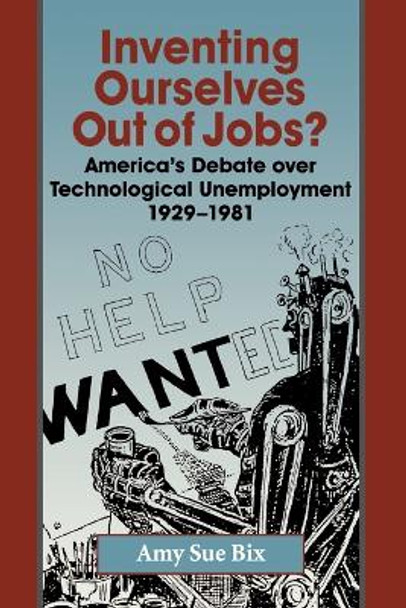Description
Focusing on how the Depression impelled a national debate over technological unemployment, Bix examines the terms of that debate while exploring what it has to tell us about ourselves and our views about technology and progress. She makes plain early on that the debate was a proxy for something more profound: the uneasy American relation to the Machine Age and its progressive claims. -- Guy Alchon, author of The Invisible Hand of Planning: Capitalism, Social Science, and the State in the 1920s
About the Author
Amy Sue Bix is an associate professor of history at Iowa State University.
Reviews
No historian before [Bix] has examined systematically what she rightly calls the American debate over the role of machines in either reducing or increasing jobs... A first-rate historical study that simultaneously speaks to our high-tech present. -- Howard P. Segal Nature Amy Bix's fine book, carefully researched and gracefully written, surveys the extent of everyday hardship during the Great Depression. She concentrates on the debates over technological unemployment in the United States, debates that were 'entwined with particular musings about the meaning of American history, the western frontier, and a sense of national destiny.'. -- Ester Fano Technology and Culture This book succeeds splendidly as an intellectual history of automation as it has been generally understood for most of this century by business and labor leaders, intellectuals, engineers, politicians, and publicists. -- George Lipsitz American Historical Review This superb account of the uproar, beginning in the 1930s, over 'technological unemployment' brings to life an unexplored area of popular economics and policy debate through much of the twentieth century. -- Howard Brick Business History Review A very thorough and balanced analysis. -- Gary Cross Journal of American History Inventing Ourselves Out of Jobs? is an able and lucidly written account of the ongoing debate in the United States over the effects of technology on employment. -- Robert H. Ziegler EH.NET It is to be hoped her book stimulates interest and provides the basis for further inquiry into the consequences of these aspects of the Information Revolution. -- Don Lamberton Prometheus This excellent study examines the multiple strands of concern about the threat to employment posed by mechanisation and automation, with the primary focus being on attitudes during the 1930s. -- M. J. French Business History
Book Information
ISBN 9780801869136
Author Amy Sue Bix
Format Paperback
Page Count 392
Imprint Johns Hopkins University Press
Publisher Johns Hopkins University Press
Weight(grams) 612g
Dimensions(mm) 229mm * 152mm * 21mm




